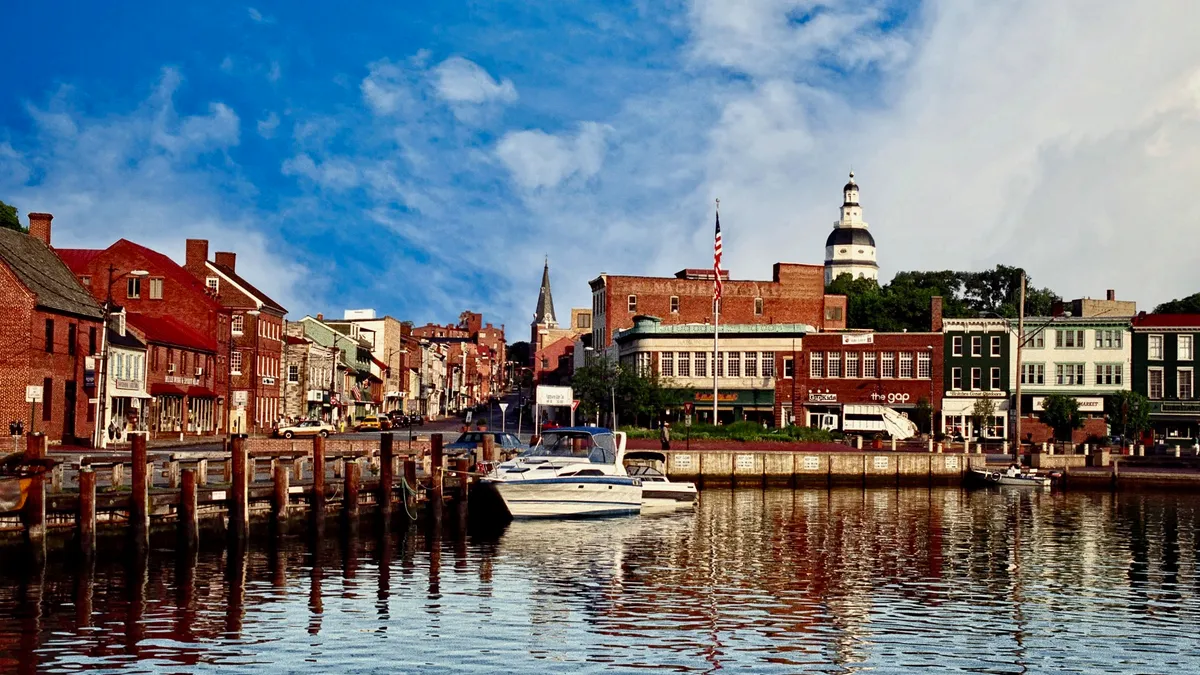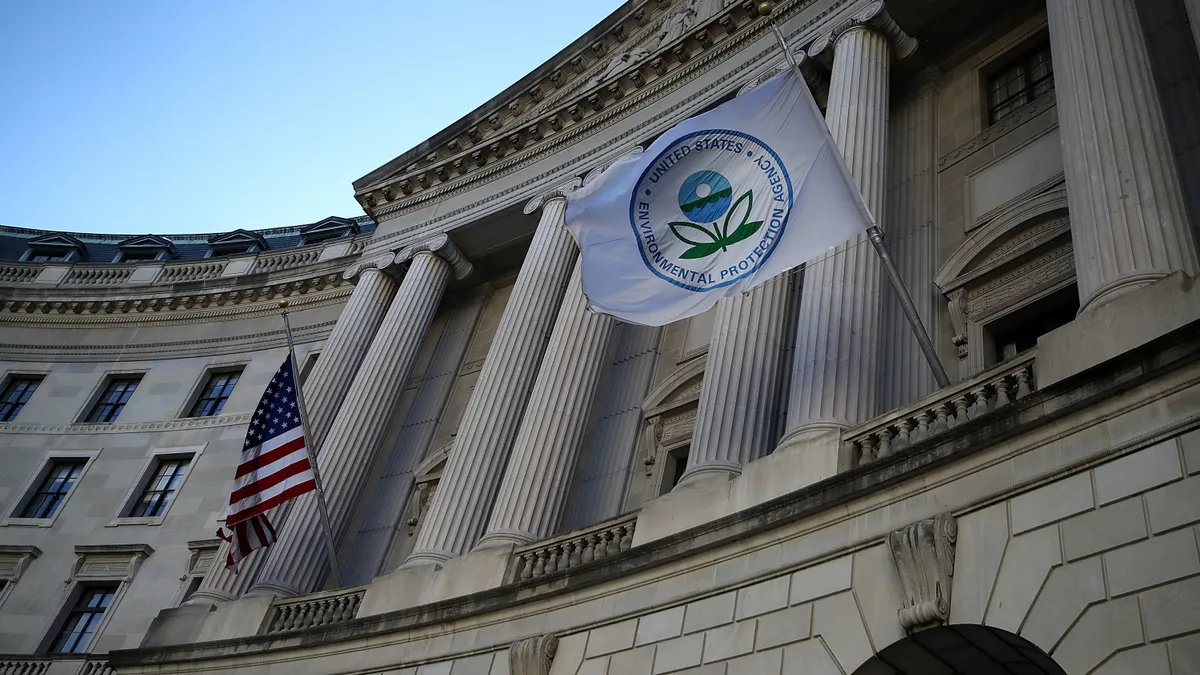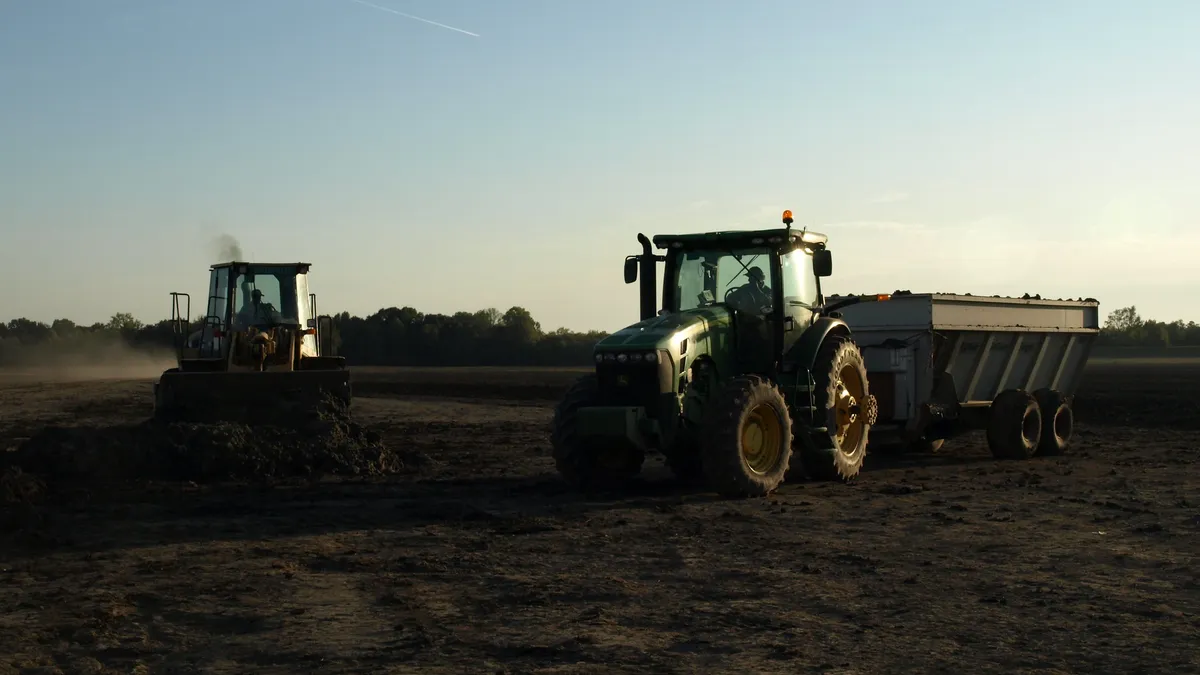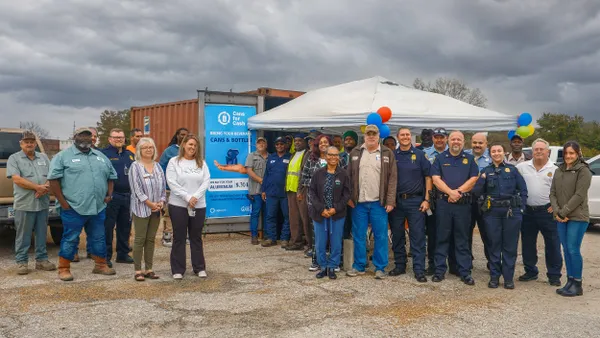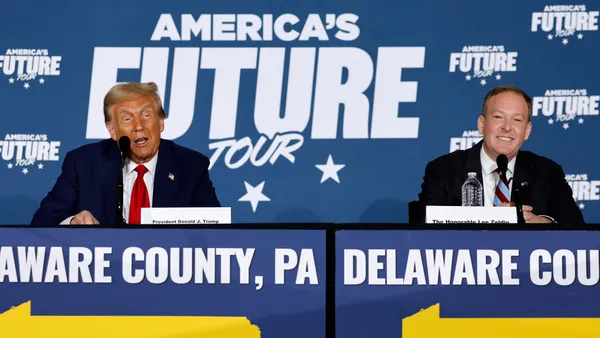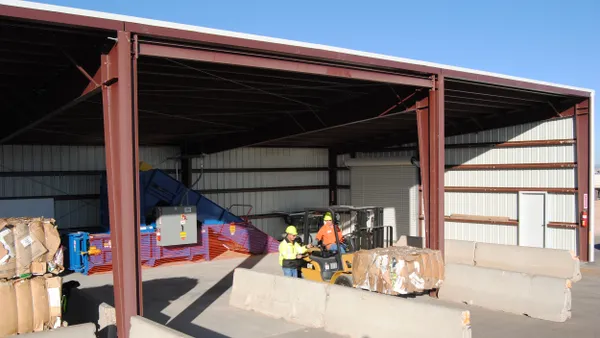UPDATE: Maryland Governor Larry Hogan signed two bills on May 4 that were supported by local organics processors and groups such as the Institute for Local Self-Reliance.
The first, HB0171, takes effect on July 1 and will require the Maryland Department of the Environment to study existing organics processing infrastructure. This will focus on current efforts and opportunities within the state, as well as existing systems in other states. The report will be due by July 1, 2019.
The second, HB1349, takes effect in October and will begin setting standards for which plastic products can be labeled as compostable or biodegradable. Starting in October 2018, the sale of mislabeled products will be prohibited.
Supporters believe that setting stricter guidelines about contaminants and expanding infrastructure could put Maryland on a path to eventually passing its own organics diversion requirement similar to existing laws in multiple Northeast states.
Dive Brief:
- A pair of bills have been introduced in Maryland's General Assembly that would require the state's Department of the Environment (MDE) to review the diversion of food and yard waste, including the availability of processing infrastructure, among other measures. The House bill, HB0171, is scheduled to have a hearing in the Environment & Transportation Committee on Feb. 8. The matching Senate bill, SB0099, had a committee hearing on Jan. 24.
- As written, the bill would require MDE to study existing organic waste diversion operations in the state, in consultation with other agencies and industry stakeholders. This would include looking at programs in other states, reviewing waste reduction strategies, considering a refuse fee to fund a grant program and considering processing options ranging from small-scale decentralized composting sites to large-scale facilities.
- If passed, this law would take effect on July 1, 2017. MDE would be expected to present an interim report by July 1, 2018 and a final report with recommendations by July 1, 2019.
Dive Insight:
Based on an executive order from former Governor Martin O'Malley, Maryland has a goal of diverting 60% if its organic waste by 2020. This is part of a larger goal of reaching 85% waste diversion and 80% recycling by 2040, which has been supported by current Governor Larry Hogan. According to a recent report, the state has an estimated 30 years of remaining landfill capacity and its per capita generation rate is higher than the national average. MDE could technically conduct this study at any time — and advised legislative staff that the proposed bill could be implemented using existing resources — but formally requiring it is seen as a necessary step.
"The goal of this current bill is to really shine a light on [the fact] that we still need to get people together to deal with specifically encouraging not only more diversion of yard waste and food residuals, but infrastructure," said Brenda Platt, co-director of the Institute for Local Self-Reliance (ILSR).
ILSR has been actively working with state officials and legislators for years to move Maryland forward on organics diversion. Platt pointed to the creation of state composting permits in 2015, and a composting bill that was recently passed in Montgomery County, as advancements in that process. The state still does not have a permitting system in place for anaerobic digesters.
A version of this current bill was originally introduced in 2015 and would have set an organics diversion requirement based on accessibility to processing options similar to what has been done in states such as Vermont. That was unsuccessful, as well as a 2016 version that was closer to this latest draft. By requiring a study of processing infrastructure first, rather than setting the diversion requirement and expecting facility investments to follow, Maryland is taking a more pragmatic approach. As Platt noted, studying a wide range of opportunities for the reduction and diversion of organic waste has the potential to help more than the state's landfill capacity.
“If you’re doing composting at urban farms you’re dealing with food access and food security in Baltimore," she said. “If you’re helping farmers be able to put compost on their crops, they’re sequestering carbon."
Maryland is the latest in a series of East Coast states, including New Jersey and New York, that have looked at organics processing on a statewide level amid the growing push toward higher diversion rates around the country.



